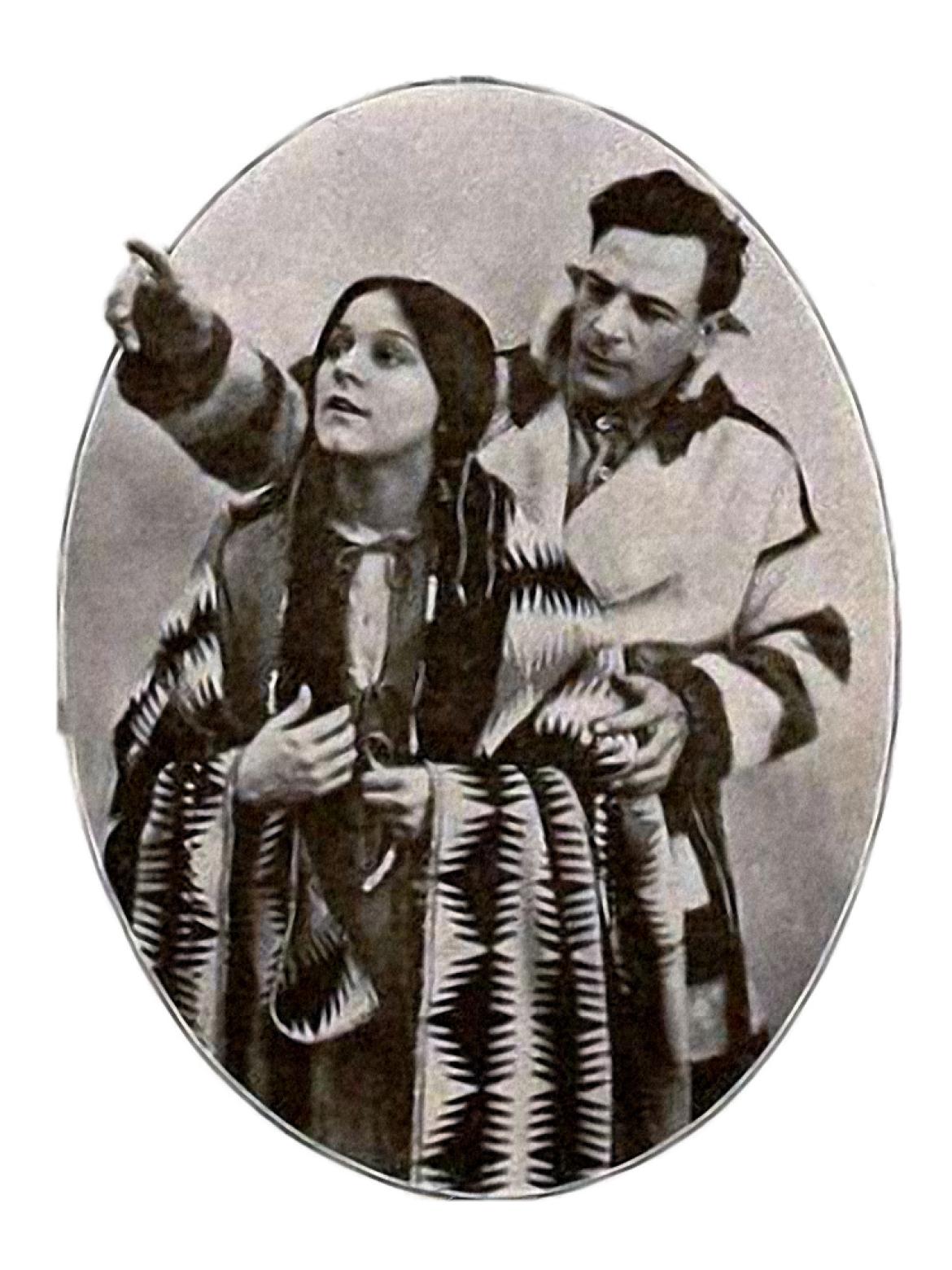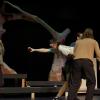
This promotional photo from the 1920 silent film Behold My Wife, with stars Mabel Julienne Scott and Milton Sills, is one depiction of the ‘half-breed’ Indigenous woman in American pop culture.
November 12, 2015 - 11:30am
Stereotypes of Indigenous women abound today, yet representations of the Métisse – Indigenous women of mixed blood and/or historic Métis women – are rare.
Allyson Anderson, a professor in Vancouver Island University’s (VIU) First Nations Studies program, will speak about her research on representations of Indigenous mixed-blood women in North America and internationally in an Arts and Humanities Colloquium presentation Friday, Nov. 20.
All are welcome to attend the free presentation, from 10 to 11:30 am in VIU’s Malaspina Theatre (Building 310).
In a presentation titled “Gypsies, Tramps and Thieves: The Contrapuntal Rantings of a Half-breed Girl,” Anderson will examine depictions of the ‘half-breed girl’ (whether mixed-blood or historical Métis), and critique some disturbing assumptions arising from those depictions that relate to the history of nation-building in Canada and the USA.
“Like the noble ‘Indian Princess’ and the ignominious ‘squaw’, ‘the half-breed girl’ is indeed a stock character in the colonial imagination, but appears far less often in pop-culture narratives than do her Indigenous ‘cousins’,” says Anderson. “When she does appear, the ‘half-breed girl’ embodies all of the social problems assumed to be the inevitable outcome of racial hybridity, as well as that of the modernization and urbanization of Indigenous people.”
Around the globe, Anderson says, the social status of mixed-blood women in the early stages of colonization varied according to their relationship to the means of production in their respective economies, which was in turn based on the status of women among those local Indigenous cultures before European occupation.
“Their unique position at this curious intersection of race, class, gender and culture, meant that here, in what is now Canada, Indigenous mixed–blood women enjoyed a degree of social status in fur trade and early colonial societies that was uncommon in colonies abroad.”
Thus, as Anderson will argue, the pop-culture representation of the vilified ‘half-breed girl’ of North American colonial yore is more deeply rooted in the anxieties of Euro-settlers regarding their appropriation of Indigenous lands, and their lines of inheritance to it, than it was grounded in actual fact.
Anderson, whose own roots reach back to ancestors among Canada’s Red River Métis, is pursuing a PhD in Native Studies from the University of Manitoba and has taught in the First Nations Studies department at VIU since 1997.
VIU’s Arts and Humanities Colloquium Series continues in 2016, with presentations on Jan. 22, Feb. 19 and March 18.
-30-
More Information
Learn more about VIU's Arts and Humanities Colloquium series at www.viu.ca/Arts_Humanities_Colloquium
Media Contact:
Shari Bishop Bowes, Communications Officer, Vancouver Island University
P:250.740.6443 C: 250.618.1535 E: Communications@viu.ca T: @viunews
Tags: In the Community






